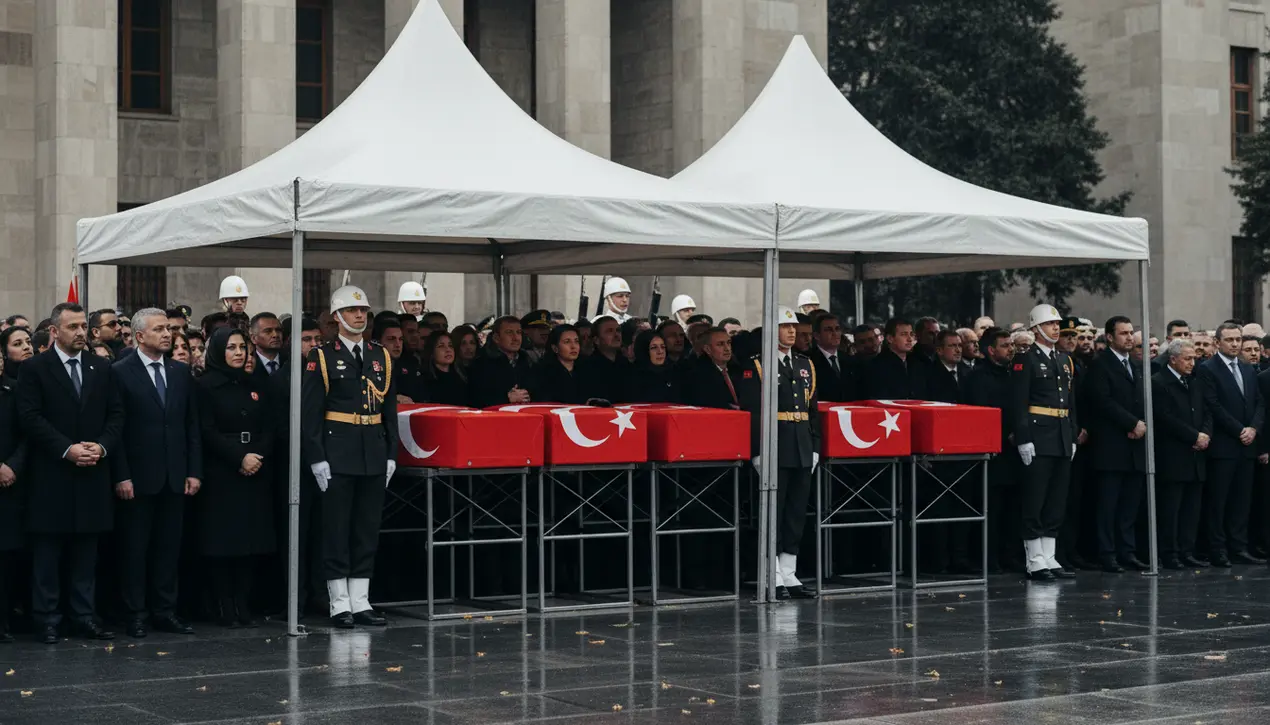
Politicsconflict & defenseWar Reports and Casualties
Turkey Holds Funeral for Troops Killed in Georgia Plane Crash.
OL
Oliver Scott
3 hours ago7 min read
The crash of a Turkish C-130 military cargo plane in Georgia's Sighnaghi municipality, a stone's throw from the Azerbaijani border, is more than a tragic accident; it is a geopolitical event layered with risk, exposing the fragile seams of a volatile region. The aircraft was returning from Azerbaijan, a key Turkish ally, a routine flight that instantly transformed into a catastrophic failure, killing all aboard and sending immediate shockwaves through diplomatic and military channels.This incident, occurring in the South Caucasus—a historical tinderbox where Russian, Turkish, and Western influences perpetually grind against one another—demands a risk assessment that looks beyond the immediate wreckage. The immediate focus, of course, is on the investigation: was it mechanical failure in an aging fleet, treacherous weather conditions in the mountainous terrain, or a more sinister, albeit less likely, human error? Each scenario carries its own set of cascading consequences.A confirmed mechanical fault would trigger a urgent, fleet-wide review of Turkey's military transport capabilities, potentially straining its operational tempo in multiple theaters, from Northern Syria to NATO's eastern flank. It would raise uncomfortable questions about maintenance protocols and defense budgeting, a vulnerability that adversaries could note.If weather is deemed the primary culprit, it highlights the inherent dangers of military logistics in this complex topography, a variable that must be more heavily weighted in future mission planning. The location itself is critically significant.Georgia, a nation still grappling with the territorial loss of Abkhazia and South Ossetia following its 2008 war with Russia, is hypersensitive to any military incident on its soil. The crash of a NATO member's aircraft, even an ally's, on its territory, complicates its delicate balancing act between Moscow and the West.For Azerbaijan, the flight's origin point, the event is a stark reminder of its deep military interdependence with Ankara, a relationship cemented during the 2020 Nagorno-Karabakh war. This tragedy temporarily disrupts a crucial supply and support corridor, a vulnerability in Baku's strategic posture.From a regional stability perspective, the immediate and professional cooperation between Turkish, Georgian, and likely Azerbaijani investigators is a positive signal, a necessary containment of the incident's diplomatic fallout. However, the underlying tensions remain.Any misstep in the communication, any premature accusation, or any exploitation of the tragedy for informational warfare by malign actors could quickly escalate perceptions. Russia, ever watchful in its near-abroad, will be analyzing the event for any shift in the regional balance of power or for potential weaknesses to probe.The long-term repercussions will be measured in updated risk models for military cooperation in the South Caucasus. It will force a recalibration of the probabilities associated with joint exercises, transit routes, and the logistical tail of regional alliances. For the families of the lost troops, this is an immeasurable human loss; for strategists and analysts, it is a grim case study in how a single point of failure—a plane crash—can send ripples through an already unstable international system, reminding us that in certain regions, there is no such thing as a routine flight.
#featured
#Turkey
#Georgia
#plane crash
#military personnel
#funeral
#Azerbaijan
#aviation accident
Stay Informed. Act Smarter.
Get weekly highlights, major headlines, and expert insights — then put your knowledge to work in our live prediction markets.
Comments
Loading comments...
© 2025 Outpoll Service LTD. All rights reserved.